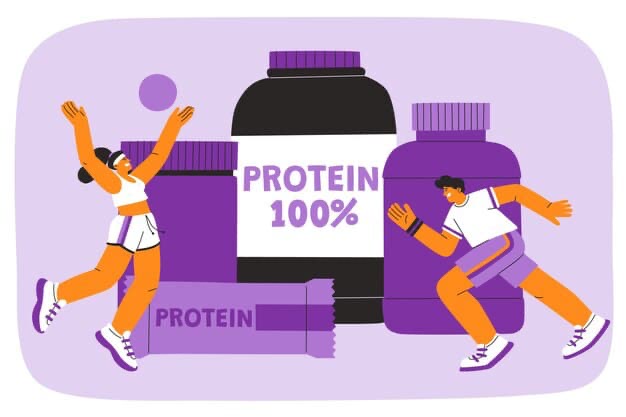“Whey Protein: Key Benefits and What to Consider Before Using It”


Top 5 Benefits of Eating Whey Protein: Fuel Your Body with Science-Backed Nutrition
Whey protein has emerged as a superstar in the health and fitness world, and for good reason. Whether you’re an athlete, a fitness enthusiast, or someone simply looking to improve their overall health, incorporating whey protein into your diet can offer significant advantages. Packed with essential nutrients, this powerhouse supplement isn’t just for bodybuilders—it’s a versatile option for anyone seeking better health and performance. Here are the top five benefits of eating whey protein and why it deserves a place in your daily routine.
- Boosts Muscle Growth and Recovery
One of the most celebrated benefits of whey protein is its role in promoting muscle growth and aiding recovery after exercise. It is a complete protein, meaning it contains all nine essential amino acids required by the body for muscle repair and synthesis. Its high concentration of leucine, a branched-chain amino acid (BCAA), makes it especially effective in stimulating muscle protein synthesis.

When you engage in physical activities such as weightlifting or cardio workouts, your muscles experience tiny tears. Whey protein provides the nutrients your body needs to repair these tears, leading to stronger and larger muscles over time. A study published in the Journal of the International Society of Sports Nutrition highlights that consuming whey protein within 30 minutes post-workout accelerates recovery, reduces muscle soreness, and enhances overall athletic performance.
Pro Tip: Mix a scoop of whey protein powder with water or milk immediately after your workout to maximize recovery benefits.
- Supports Weight Loss and Fat Reduction
Contrary to popular belief, whey protein isn’t just for gaining muscle—it’s also an excellent tool for weight loss. One of the key reasons is its ability to promote satiety, helping you feel full for longer. This can curb unnecessary snacking and overeating, both of which are common obstacles in weight management.

Whey protein also boosts your metabolism through a process called the thermic effect of food (TEF), which refers to the calories your body burns during digestion. Protein has a higher TEF compared to carbohydrates and fats, making it an efficient nutrient for fat loss. Research shows that individuals who include whey protein in their diet experience greater reductions in body fat and waist circumference compared to those who don’t.
Pro Tip: Replace a high-calorie snack with a whey protein shake to cut calories without sacrificing nutrition.
- Enhances Immune Function
While whey protein is often associated with fitness, its benefits extend far beyond physical performance. It contains immunoglobulins, lactoferrin, and beta-lactoglobulin—components that strengthen the immune system. These bioactive compounds support the production of antibodies and enhance your body’s ability to fight infections and illnesses.
Additionally, whey protein is rich in cysteine, an amino acid that boosts levels of glutathione, a powerful antioxidant. Glutathione plays a crucial role in protecting cells from damage caused by free radicals, reducing inflammation, and supporting overall immune health.
Pro Tip: Incorporate whey protein into your morning routine to start your day with an immune-boosting advantage.
- Manages Blood Sugar Levels and Supports Heart Health
For individuals managing diabetes or looking to improve heart health, whey protein can be an invaluable addition to their diet. It has been shown to help regulate blood sugar levels by improving insulin sensitivity. This effect is particularly beneficial for those at risk of developing type 2 diabetes or struggling with metabolic syndrome.
Moreover, studies have found that whey protein can reduce levels of LDL cholesterol (the “bad” cholesterol) and increase HDL cholesterol (the “good” cholesterol), promoting cardiovascular health. The bioactive peptides in whey protein are also linked to lowering blood pressure, further protecting the heart.
Pro Tip: Pair whey protein with low-glycemic foods like oats or berries for a balanced, heart-friendly meal.
- Convenient and Nutrient-Rich for Busy Lifestyles
In today’s fast-paced world, finding time to prepare balanced meals can be a challenge. Whey protein offers a convenient and quick way to meet your daily protein needs without compromising on quality. A single serving typically provides 20-30 grams of protein, along with essential vitamins and minerals, making it an ideal option for those on the go.
Whey protein is also incredibly versatile—you can add it to smoothies, baked goods, yogurt, or even soups to enhance their nutritional profile. Its ability to blend seamlessly with various foods makes it a practical choice for busy professionals, students, and parents alike.
Pro Tip: Experiment with different whey protein flavors like chocolate, vanilla, or strawberry to keep your meals exciting and delicious.
Choosing the Right Whey Protein
To reap the full benefits of whey protein, it’s important to choose the right type for your goals. Here are the three main types:
- Whey Protein Concentrate (WPC): Contains a lower protein percentage (70-80%) but retains more nutrients like lactose and fats. Ideal for those looking for a budget-friendly option.
- Whey Protein Isolate (WPI): Highly processed with a protein content of 90% or more, making it a great choice for those aiming to reduce carb and fat intake.
- Hydrolyzed Whey Protein: Pre-digested for faster absorption, making it suitable for individuals with digestive sensitivities or those looking for quick post-workout recovery.
Precautions and Considerations
While whey protein is generally safe for most people, it’s important to consume it in moderation. Excessive intake can lead to digestive issues such as bloating, gas, or upset stomach, especially for those with lactose intolerance. Opt for lactose-free whey protein isolates if you’re sensitive to dairy.
Additionally, always consult a healthcare professional or nutritionist before incorporating supplements into your diet, especially if you have pre-existing medical conditions.
Conclusion: Why Whey Protein Is a Game-Changer
Whey protein isn’t just a supplement—it’s a versatile, science-backed tool that supports your body in multiple ways. From enhancing muscle growth and aiding weight loss to boosting immunity and improving heart health, its benefits are far-reaching and impactful. Whether you’re an athlete pushing your limits or someone looking for convenient ways to stay healthy, whey protein can elevate your nutrition and lifestyle.
By incorporating whey protein into your routine, you’re not only fueling your body but also investing in long-term health and well-being. So why wait? Make whey protein a part of your daily diet and experience the transformative power of this nutrient-packed supplement.




